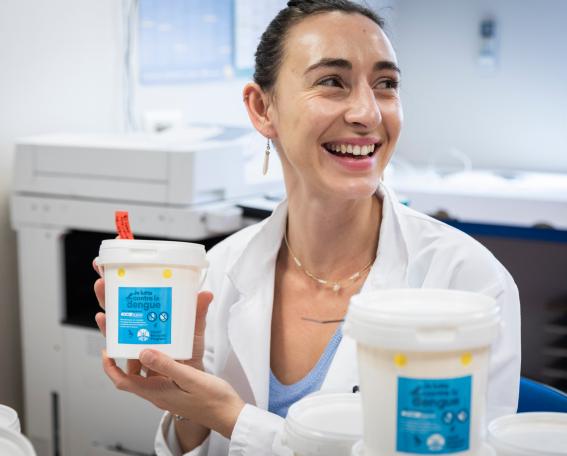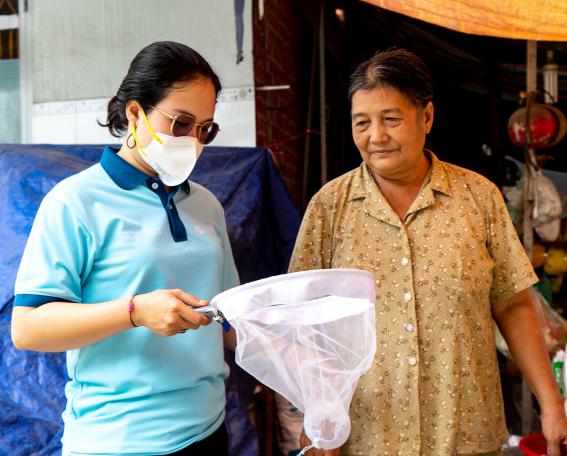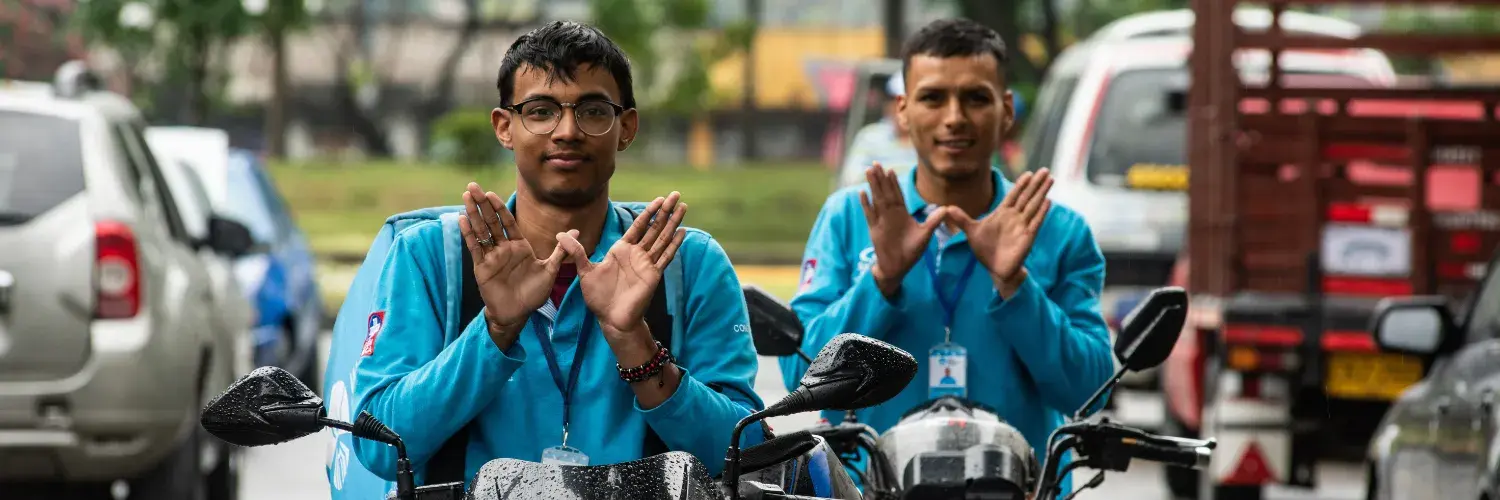The World Mosquito Program's Wolbachia method of reducing mosquito-borne diseases is natural and self-sustaining. Our sustainability model comprises five key pillars.
Self-sustaining science

In order to be successful, our Wolbachia method has to be sustainable. In contrast to insecticide-based programs or the use of Wolbachia for population suppression, our method has the potential to offer sustained protection from disease regardless of the number of mosquitoes present in the environment.
We release a small number of male and female mosquitoes with Wolbachia and these mosquitoes then mate with the wild mosquito population. The bacteria are passed from generation to generation, and over time, the percentage of mosquitoes carrying Wolbachia grows.
Research shows that Wolbachia can sustain itself in mosquito populations without continual reapplication, making this a long-term, self-sustaining approach that has no adverse impact on natural ecosystems.
Knowledge sharing

The World Mosquito Program provides training and support for local staff and volunteers, so that they run much of the program independently. Building capacity within the communities in which we work is essential to the efficiency and acceptance of our work. It also gives staff the fulfillment of knowing they are contributing to the health and well-being of their own community.
Local support

Every project is supported by volunteers and staff from the local community. Without local support, the project cannot proceed. Local staff provide insights and information about how their community works, who needs to be involved and how best to communicate with relevant stakeholders. The World Mosquito Program is dependent on the people in the places in which it works.
Ongoing monitoring and evaluation

Our projects take time. From the very first interaction with a community to implementation and ongoing monitoring of results. We provide updates and continue to educate long after mosquitoes have been released. It's critical that the people we work with see the long-term impact of the projects they have helped to carry out.
Community engagement

Community engagement is the cornerstone of our work. The World Mosquito Program provides opportunities for communities to learn about our Wolbachia method so they can raise any concerns and properly understand how it will benefit them and their families. Having people participate in the release of mosquitoes and the monitoring of results provides a sense of ownership of the project and the satisfaction of knowing they have had a meaningful impact on the health of their community.

A long-term solution
We release male and female Wolbachia mosquitoes over a number of months, and these mosquitoes then mate with the wild mosquito population. The Wolbachia bacteria are passed from generation to generation and, over time, the proportion of mosquitoes carrying Wolbachia grows until it remains high without the need for further releases.
Mosquitoes with Wolbachia are less able to transmit viruses to people, so the risk of outbreaks in Wolbachia-treated areas is reduced.
Our research shows Wolbachia can sustain itself in mosquito populations without continual reapplication. Years after releases have finished, the Wolbachia mosquitoes in our project sites retain the same reduced ability to transmit viruses to people.
This makes it a long-term, cost-effective and self-sustaining approach.
Read more how our Wolbachia method curb the economic toll of mosquito-borne diseases

Affordable, effective and safe
Our Wolbachia method is unique because it usually only needs to be applied once to be effective. This makes it a self-sustaining, affordable and long-term solution to mosquito-borne diseases.
Our method helps to reduce the transmission of diseases; however, it does not reduce the overall number of mosquitoes. Instead, we aim to introduce Wolbachia into the wild mosquito population, so the overall mosquito population has a reduced ability to transmit diseases.
In comparison to insecticide-based programs, or techniques that suppress mosquito populations, our method has the potential to offer sustained protection from disease from a single application.

Climate Change
As the planet warms and climate change lengthens the mosquito season, the world’s deadliest creature will expand its geographical range to new regions and re-emerge in areas where mosquito numbers had subsided for decades.
Extreme climate and weather patterns such as droughts, heatwaves, floods, and rainfall are increasing in severity and regularity across the globe. These provide favourable conditions for mosquitoes to breed and could help spread their viruses to higher latitudes and altitudes.
Endemic already across sub-Saharan Africa, Southeast Asia and Latin America, mosquito-borne diseases are re-establishing in populations in different parts of the world.


